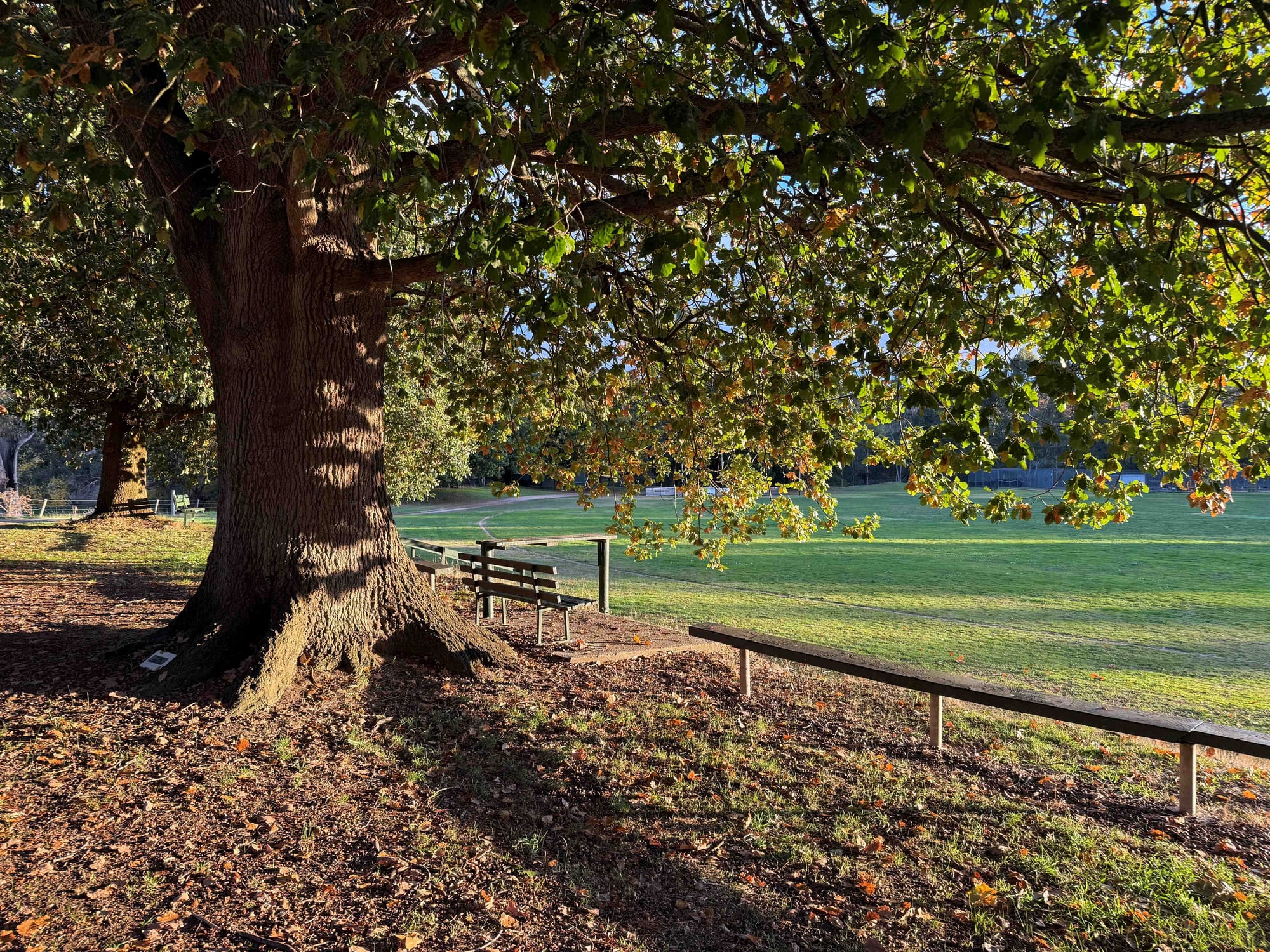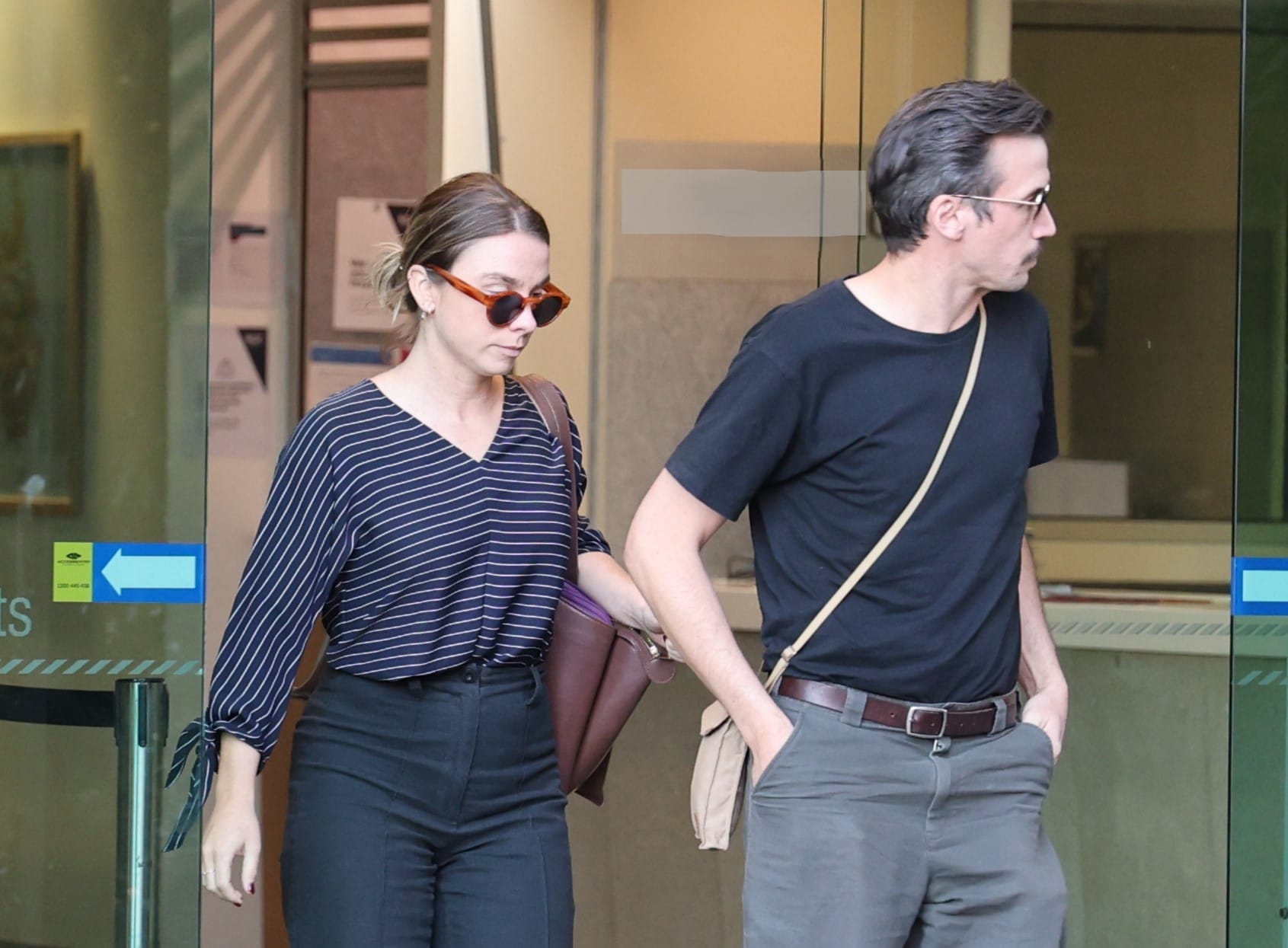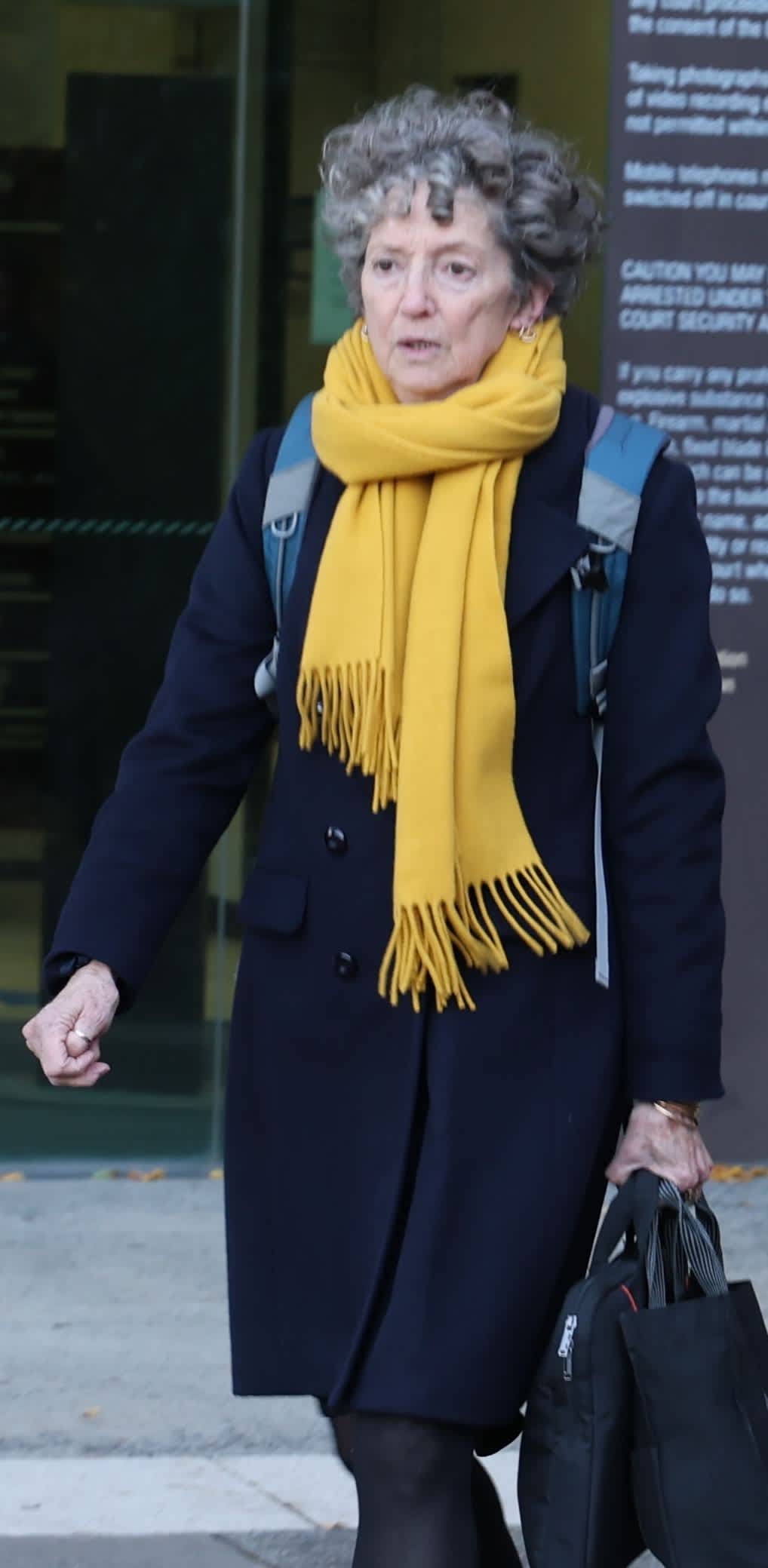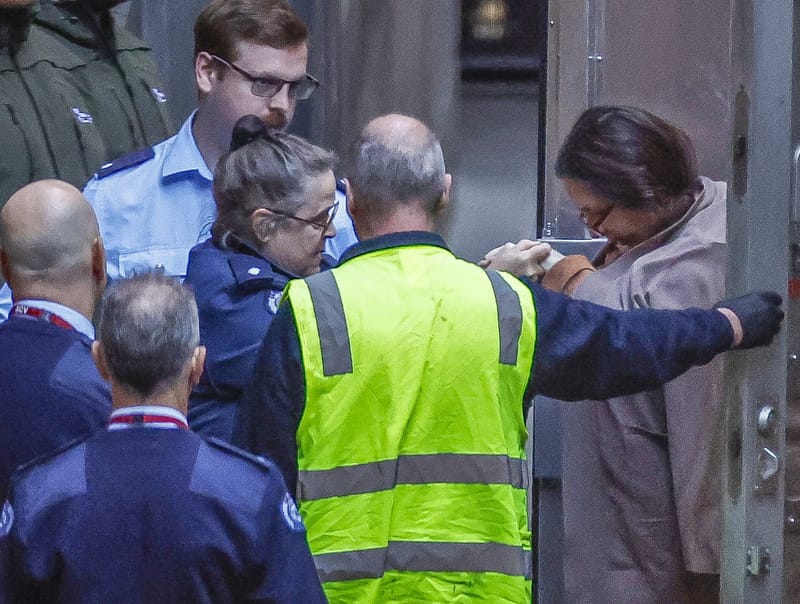Mushroom trial: If she loved them, why didn’t she help them?
“SURELY, if you loved them, you would have immediately notified the medical authorities about there being a possibility that the foraged mushrooms had gone into the container with the Chinese mushrooms?” said Dr Rogers. “Well, I didn't,”...


“SURELY, if you loved them, you would have immediately notified the medical authorities about there being a possibility that the foraged mushrooms had gone into the container with the Chinese mushrooms?” said Dr Rogers.
“Well, I didn't,” said Erin Patterson.
It was Friday, June 6, Day 28 of Erin Patterson’s marathon murder trial in Morwell and the woman accused of three counts of murder and one of attempted murder was in the witness box for a fifth straight day.
Erin Patterson has pleaded not guilty to all changes.
The cross-examination was mostly about why Mrs Patterson had lied to doctors, public health officials and the police about foraging for wild mushrooms in the weeks leading up to that fateful lunch of beef Wellington at her home on Saturday, July 29, 2023.
And why, on her own evidence, after finally acknowledging to herself on August 1, that there could have been poisonous mushrooms in the meal, she still didn’t tell anyone.

Under questioning by Crown Prosecutor Dr Nanette Rogers last Thursday, Mrs Patterson agreed she foraged for mushrooms in the weeks between April 28, 2023, when she purchased a food dehydrator from Hartley Wells in Leongatha, and the day of the family lunch on July 29, 2023.
However, until her lawyer Colin Mandy SC revealed to the court in his opening remarks on Day Two of the trial that his client had “lied to police about foraging for mushrooms”, no one knew for sure for the best part of two years how they got into the meal; not the doctors treating the sick patients from her beef Wellington lunch, not the health department officials chasing down a possible food safety breach in the days after the mass poisoning event, not the police investigating the case and not her estranged husband Simon Patterson.
But, on her own evidence, Erin Patterson knew she had been foraging for wild mushrooms prior to the lunch when Simon phoned her at 11.18am and 2.30pm on Sunday, July 30, telling her that his parents, Don and Gail Patterson, were sick in hospital.
On the evidence of Lisa Shannon, the after-hours coordinator at Korumburra hospital, Don and Gail Patterson presented at the hospitals’ urgent care department at 10.10am on Sunday, July 30, 2023.
The clock was already ticking on their exposure to the deadly amatoxins in amanita phalloides mushrooms, but it wasn’t until sometime after 6.50am on Monday, July 31 that they were finally administered the potentially life-saving amanitin antidote, Silibinin, the most widely used inhibitor of the effects of death cap mushrooms.
Silibinin interrupts the secretions from the liver to the intestine that enable the recirculation of amatoxin, ultimately facilitating amatoxin clearance.
Even then, doctors were still unsure of the source of the poisoning.
If Simon and Erin didn’t speak until the later of those two time checks, at 2.30pm on the Sunday, July 30, it was still more than 16 hours before the doctors started the patients on Silibinin in what was a time-critical situation.
The phone call on Sunday between Simon and Erin was the subject of much questioning by the prosecutor last Friday.
“But you accept that he told you about Don and Gail being ill?” said Dr Rogers, having already put it to Mrs Patterson that Simon had told her about Don, Gail, Heather and Ian all being sick in hospital.

Erin denied Simon had said anything about Ian and Heather, but she agreed he did say Don and Gail were in hospital.
“He did do that,” said Erin.
“And in hospital?” asked Dr Rogers.
“Correct,” said Erin.
Dr Rogers went on to suggest to Mrs Patterson that she did not ask about Don and Gail’s condition, but Erin replied that the phone conversation was clearly about them being in hospital.
In his evidence, on Day Four of the trial, Simon Patterson acknowledged that Erin may not have known how badly ill his family members were at that stage.
“It intrigued me that she never actually asked,” said Simon during cross-examination by defence counsel for Erin Patterson, Colin Mandy SC.
“That wasn't the question, Mr Patterson.”
“So, the answer is yes, I didn't. We didn't have that conversation, I don't think, at any time,” said Simon.
“Is it your position that on August 1, 2023, that Erin was aware about your family members being sick, but she wasn't aware about how bad they were?”
“Yeah, that’s quite possible,” said Simon.
However, it was the evidence of Tanya Patterson, Simon Patterson’s sister-in-law, who visited Erin at Monash on the morning of Tuesday, August 1 that Erin already knew Don and Gail were in a coma.
“To begin with, Erin asked me how everybody was, and I told her that things were going downhill quickly but I didn't have the latest information,” Tanya said in her evidence on Day Eight of the trial.
“Did she indicate to you what she knew?” asked junior counsel for the prosecution, Sarah Lenthall.
“Yeah, she told me that she knew that Don and Gail at least were in a coma and I said that was the latest I knew and if she wanted to know more, it's better probably to wait for Simon to tell her.”
Pressed on her recollections by Mr Mandy’s junior counsel Sophie Stafford, Tanya Patterson repeated that Erin had told her she knew Don and Gail were in induced comas but acknowledged it was at least possible she could be wrong.
Last Friday, Dr Rogers probed Erin Patterson about why she didn’t tell the doctors on August 1 about foraging, after a realisation that day that poisonous mushrooms may have gone into the container of Chinese mushrooms, and with them into the meal.
Dr Rogers: “No, you didn't but even though you had the realisation on August 1, 2023?”
Erin Patterson: “That's correct, but I had been told that people were getting treatment for possible death cap mushroom poisoning. So that was already happening.”
Dr Rogers: “But you didn't feel the need to tell any medical authorities about the possibility that the dried foraged mushrooms, on your evidence, that you had found had gone in the container with the Chinese mushrooms?”
Erin Patters: “That's correct. I did not tell anybody.”
Dr Rogers: “On your evidence, you never once told a medical professional that foraged mushrooms were involved or might have been involved, correct?” asked Dr Rogers again.
“That's correct.”
Erin Patterson has claimed that an accusation by her husband Simon, while she was in hospital at Monash Clayton on August 1, 2023, that she’d allegedly used the dehydrator “to poison my parents”, prompted the realisation “that it might have been a possibility” that wild mushrooms had gone into the Tupperware container in her pantry.
She already knew authorities were trying to establish the source of the mushrooms when she presented at Leongatha Hospital the previous morning.
Just after 8am on Monday morning, July 31, 2023, on her initial presentation at Leongatha Hospital, Dr Chris Webster asked her as much.
“There's a concern of death cap mushroom poisoning,” Dr Webster told the court he had said to Erin in the Urgent Care Centre that morning.
“Where did you get the mushrooms?”
“Woolworths,” was allegedly Erin Patterson’s one word reply.
On the evidence of night-shift registrar at Dandenong Hospital, Dr Beth Morgan, on Day 6 of the trial, Don Patterson was transferred from Korumburra hospital to Dandenong Hospital by Ambulance Victoria, arriving at 6.39pm on Sunday, July 30.
He was already seriously ill.
Initial documentation was completed in the ED by Dr Petersen at 8.12pm reporting 30 to 40 episodes of vomiting and diarrhoea starting at midnight going into the morning of July 30.
Dr Petersen’s notes recorded that Simon Patterson was in the ED with his parents at that stage, and that he explained they had attended a lunch at his ex-wife's house the previous day where she had prepared a meal including that of a beef Wellington with mushrooms.
Dr Morgan said they also knew that another couple had also attended the meal and had presented at another hospital with similar symptoms to Gail and Don.
Initial investigations, ordered by the emergency department at 7.49pm on Sunday night, recorded Don’s lactate levels at 10 where normal lactate is between 0.5 and 2, “so this was a very, very high lactate” level according to Dr Morgan, who didn’t actually come on shift until 9.30pm. Dr Morgan explained to the court that an elevated lactate is likely to be caused by tissue hypoxia or organ damage.
They initially suspected an ischaemic bowel problem, but a CT scan of the abdomen ruled that out at 11.12pm.
At 10.30pm, an hour after coming on shift, Dr Morgan called toxicology registrar Dr Mark Douglas.
“I was concerned that this wasn't just a gastroenteritis caused by food poisoning, necessarily. I wanted to get some more information from our toxicology team, so I spoke to Mark.”
He expressed concern about the delayed onset of the symptoms being suffered by Don as being indicative of serious toxin syndrome associated with the ingestion of the amanita phalloides mushrooms.
Meanwhile, Don Patterson’s condition was getting worse, and he was admitted to ICU at Dandenong at 11.20pm.
Dr Morgan called Dr Douglas again at 11.30pm and he undertook to contact the senior toxicologist, Dr Yit Leang, she said the specific antidote for amanita phalloides toxicity Silibinin wasn’t indicated at that time.
“Based on the story that we knew so far, Dr Leang's advice was that at the moment there wasn't enough evidence, it wasn't clearly cause and effect of having had a specific mushroom called amanita phalloides, the death cap, so at that point the specific antidote to that wasn't indicated at that stage,” Dr Douglas told the court, during his evidence on Day Seven of the trial.
Gail arrived around the same time as Don, but her symptoms weren’t as bad as Don’s initially. When Dr Morgan saw her at 1.53am, on Monday, July 31, she had “some mild ongoing vomiting and diarrhoea and she was having some cramping abdominal pain”. But despite her vital signs all being within normal limits Dr Morgan sent her to ICU as well, recommending a close liaison with toxicology.
The results of the liver function test for Gail were received at 2.08am on Monday showing her liver function was worsening and she was started on the liver protection medication N-acetylcysteine at 4.30am.
At 6.30 am, Dr Douglas received a further phone call from Dr Morgan, advising that Don’s clinical state had worsened even further and now Gail was showing similar signs.
Dr Douglas advised her that she should start getting the process running to start some Silibinin, as per the Austin clinical guidelines.
In her evidence it was at 6.50am, during a telephone call to Dr Douglas, according to Dr Morgan “he suggested that the amanita poisoning was more likely and that we should try and source the specific anecdote, which is the Silibinin, and these should be administered, unfortunately, Monash Health at Dandenong didn’t have enough”.
Dr Rogers: “In terms of the specific antidote for amanita phalloides, did you call the pharmacist on-call to source that antidote?”
Dr Morgan: “Yes, that's correct. I expressed that we're probably going to need this for at least four patients and unfortunately the pharmacist advised us that we didn't have that available to us at Monash Health but they were going to obtain it from an external hospital.”
It is not known exactly what time the patients started receiving Silibinin, but sometime between 10am and 10.45am on Monday, July 31, Don was sedated and intubated and prepared for transfer to the Austin hospital, which houses the Victorian Liver Transplant Unit.
It was around this time that Erin Patterson had returned to the Leongatha Hospital, after a Triple Zero call had been put out for her, and in a conversation with Dr Webster, was warned that she and her children could be at risk of being poisoned.
He said Erin was reluctant to tell the children, that they might get scared.
“I said they can be scared and alive or dead,” said Dr Webster in his evidence on Day Seven of the trial.
At that stage, according to Dr Douglas, they were “still unsure about the exact mechanism” of the patients’ illness and that there were several other kinds of poisons that could have caused such an effect beyond just the mushrooms.
But while they were waiting to find the exact cause they should start the patients on Silibinin anyway.
At 7am that day, Dr Morgan called Dr Chris Webster at Leongatha about the condition of Ian and Heather Wilkinson to be told that the two patients were still vomiting but unfortunately that it wasn't possible for him to do liver function tests in Leongatha overnight.
“I recommended that, despite not knowing what the liver function tests were, to start them on an N-acetylcysteine (NAC) infusion, along with intravenous rifampicin, as we were doing with Don and Gail, unfortunately, there was no rifampicin available in Leongatha either, so they were started on another antibiotic called benzylpenicillin, to be used in the treatment of amanita phalloides, as per the toxicology guidelines (from the Austin hospital).”
Dr Morgan also initiated the transfer of Ian and Heather to Dandenong.
At around 8.30am on Monday, July 31, Dr Morgan got a call from Dr Webster of Leongatha while she was driving home, advising that Erin Patterson had presented at Leongatha, and the same treatment being received by the other four was prescribed for her as well.
The two doctors agreed on the need to transfer Erin Patterson to a tertiary hospital.
During her evidence in chief, last Wednesday, June 4, Erin Patterson was asked about the conversation with her husband Simon, at the Monash hospital on August 1, when Simon allegedly accused her of poisoning his parents with dried mushrooms from the food dehydrator.
As well as saying “of course not” Mrs Patterson acknowledged it gave her cause to reflect on her use of the dehydrator and on what might have been in the meal.
“…and how I had dried foraged mushrooms in it weeks earlier,” said Erin.
“How did that make you feel?” asked Mr Mandy.
“Scared. Responsible. Really worried because Child Protection were involved and Simon seemed to be of the mind that maybe this was intentional, and I just got really scared. Yeah.”
However, after Child Protection finished their interviews with Simon and Erin, and she left the hospital with the children, the first thing she did the next day, feeling frantic, after driving the kids to school, was not to tell medical authorities about her fears that poisonous mushrooms might have found their way into the meal… she took the dehydrator to the Koonwarra tip.
As a result of preparing a meal of beef Wellington with death cap mushrooms in July 2023, Erin Patterson has been charged with three counts of murder and one of attempted murder. Mrs Patterson has pleaded not guilty to all charges, saying what happened on that day was a tragedy and a terrible accident.
The trial goes into its seventh week on Tuesday, June 10 in the Supreme Court in Morwell.






